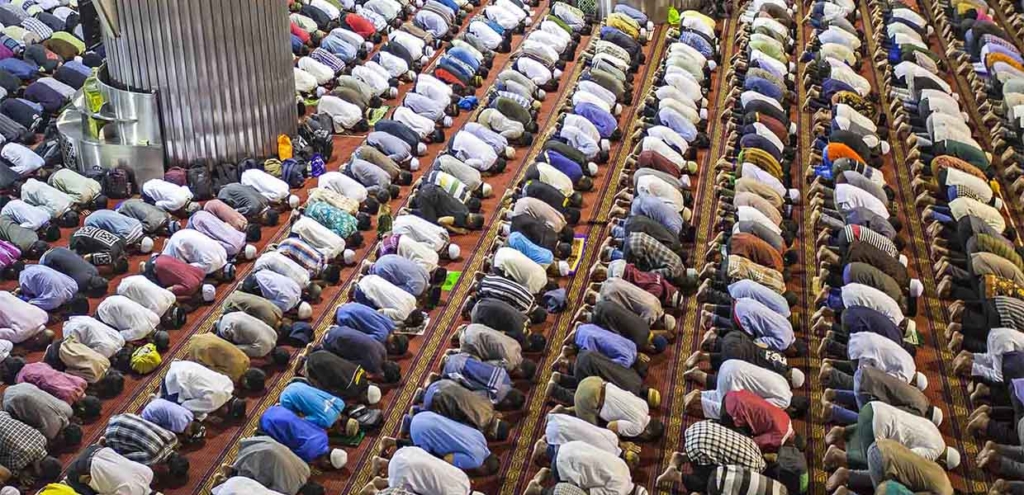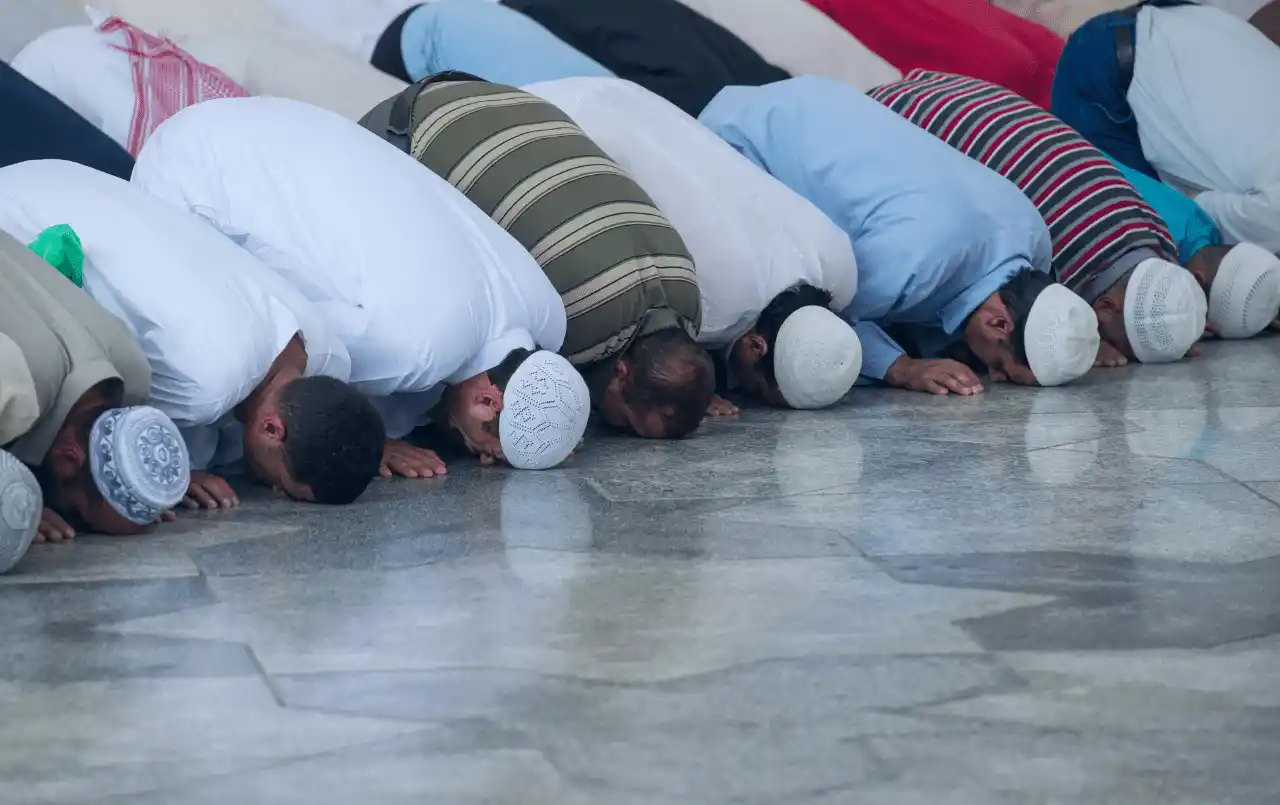As Muslims, Salah (prayer) is one of the most important aspects of our daily lives. It is the second of the five pillars of Islam and is mandatory for all Muslims to perform. Among the five daily prayers, the Maghrib prayer holds a special place. In this article, we will discuss the significance, time, and procedure of Maghrib prayer in detail.
What is Maghrib Prayer?
Maghrib prayer is the fourth obligatory prayer of the day that Muslims perform after the Asr and before the Isha prayer. It is performed after the sun has set and the sky turns dark. Maghrib prayer consists of three Rak’ahs (units of prayer), and it is mandatory for all adult Muslims who have reached the age of puberty and are sane.
Significance of Maghrib Prayer

Maghrib prayer holds great importance in Islam as it marks the end of the day and the beginning of the night. It is a time when Muslims take a break from their daily activities and turn towards Allah in prayer. Maghrib prayer is a means of seeking forgiveness from Allah, showing gratitude for His blessings, and seeking guidance in our daily lives.
Time for Maghrib Prayer
The time for Maghrib prayer begins immediately after the sun has set and ends when the red glow on the horizon disappears, usually around one hour and fifteen minutes after sunset. The time for Maghrib prayer is determined by the position of the sun in the sky and varies depending on the location and season.
The procedure of Maghrib Prayer
Maghrib prayer consists of three Rak’ahs (units of prayer), and each Rak’ah has its own set of recitations and movements. The following is a step-by-step guide to performing Maghrib prayer:
- Make the intention (niyyah) for Maghrib prayer.
- Perform the Takbiratul Ihram (saying “Allahu Akbar” to begin the prayer).
- Recite Surah Al-Fatihah (the first chapter of the Quran) followed by a Surah or verses from the Quran.
- Perform Ruku (bowing down) and recite “Subhana Rabbiyal Adheem” (Glory be to my Lord, the Greatest) three times.
- Stand up from Ruku and recite “Sami Allahu liman hamidah” (Allah listens to those who praise Him) and then say “Rabbana lakal hamd” (Our Lord, all praise is due to You).
- Perform Sujud (prostration) and recite “Subhana Rabbiyal A’la” (Glory be to my Lord, the Highest) three times.
- Sit up from Sujud and recite “Allahu Akbar” to return to the standing position.
- Repeat steps 2 to 7 for the second Rak’ah.
- After the second Rak’ah, sit down and recite Tashahhud (a prayer that is recited while sitting).
- Recite the Taslim (saying “Assalamu Alaikum wa Rahmatullah” to end the prayer) to the right and left.
Tips for Offering Maghrib
To make the most out of your Maghrib prayer, here are some tips to keep in mind:
- Try to perform the Maghrib prayer as soon as possible after the Adhan (call to prayer) is given. This will ensure that you perform the prayer within its designated time.
- Take a few moments to reflect on the meaning of the words you recite during the prayer. This will help you connect with Allah and increase the spirituality of the prayer.
- Ensure that you are in a clean and comfortable space for prayer, with proper lighting and minimal distractions.
- Focus on your posture and movements during the prayer to ensure that you are performing them correctly and with proper concentration.
- After completing the prayer, take a few moments to offer supplications (dua) to Allah and seek His blessings.
Benefits of Performing Maghrib Prayer

Performing Maghrib prayer regularly has many benefits, both spiritual and physical. Some of the benefits include
- Strengthening of faith and connection with Allah
- Increased mindfulness and focus in daily life
- Improved physical health, as the prayer, involves physical movements and postures
- Stress relief and mental relaxation
The Sunnah Actions of Maghrib Prayer
The Sunnah of Maghrib is two rak’ahs after the Maghrib prayer.
As proven in the hadith of Abdullah Ibn Omar – may God be pleased with him – He said: (I memorized ten rak’ahs from the Prophet, may God bless him and grant him peace).
two rak’ahs before noon, and two rak’ahs after it, Two rak’ahs after sunset in his house, two rak’ahs after dinner at his house, and two rak’ahs before the morning prayer. And there was an hour during which he did not enter upon the Prophet, may God bless him and grant him peace. Hafsa told me: When the muezzin called the call to prayer and dawn came, he would pray two rak’ahs.) Narrated by Al-Bukhari.
Common Mistakes to Avoid during Maghrib Prayer
There are some common mistakes that Muslims make while performing the Maghrib prayer. These mistakes include:
- Delaying the prayer unnecessarily
- Rushing through the prayer and not taking enough time to reflect on its meaning
- Performing the prayer in a distracted or hasty manner
- Not performing the prayer in a clean and appropriate space
- Failing to recite the correct verses or making mistakes in the movements and postures
How to Make Up a Missed Maghrib Prayer
Whoever misses the prayer due to sleep or forgetfulness and the like, must hasten to make it up whenever he remembers it. Because the Prophet, may God’s prayers and peace be upon him, said: Whoever forgets a prayer, or sleeps and misses it, then its expiation is for him to pray it if he remembers it. Narrated by Muslims on the authority of Anas.
The Recommended Azkar of Maghrib Prayer
There is no authentic hadith indicating the desirability of a specific remembrance or supplication that is said at the Maghrib prayer in particular, whether before or after it, but there are many well-known morning and evening remembrances that a Muslim servant can say before or after the Maghrib prayer, but they are not related to the Maghrib prayer itself.
Conclusion
Maghrib prayer is an important part of the daily lives of Muslims, and its significance should not be underestimated. By performing Maghrib prayer regularly with proper concentration and focus, we can strengthen our connection with Allah and improve our physical and mental health. By avoiding common mistakes and following the correct procedure for the prayer, we can ensure that we derive the maximum benefits from it.
FAQs
What is the difference between Maghrib and Isha prayer?
Maghrib prayer is performed immediately after sunset, while Isha prayer is performed after the sky has become completely dark.
What happens if I miss Maghrib prayer?
If you miss Maghrib prayer, you should perform it as soon as possible after the designated time has passed.
Can women perform Maghrib prayer during their menstrual cycle?
Women are exempted from performing Salah during their menstrual cycle, including Maghrib prayer.
Can Maghrib prayer be performed in congregation?
Yes, Maghrib prayer can be performed in congregation, and it is encouraged to do so.
What is the reward for performing Maghrib prayer?
The reward for performing Maghrib prayer is immense, and it is said that Allah forgives the sins of those who perform it with proper concentration and focus.

